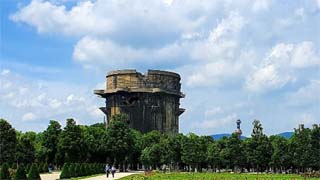Online workshop by Belgrade and Vienna on air quality
During an online workshop on 5 February 2024, Vienna and Belgrade shared their expertise to ensure the efficiency of their air protection systems.

Clean air is one of the key aspects for liveable cities. For the Serbian capital Belgrade, the content of the expertise exchange is extremely valuable in the fight against air pollution, and a continuation of the expertise exchange is already planned.
Especially in winter, air pollution becomes a burden for many cities, including Belgrade. Experts from the Belgrade Secretariat for Environmental Protection, the Institute of Public Health of Belgrade and the Vienna Municipal Department for Environmental Protection (MA 22) discussed air protection measures of both capitals, the air quality measurement and the reduction of emissions. The online meeting was organised by the City of Vienna's International Office in Belgrade.
The basics of air protection in Vienna
A key air protection measure in Vienna is to encourage less motorised private transport and more use of public transport as well as walking and cycling in the city. This was illustrated in a presentation by the Municipal Department 22. Seventeen stations in the Austrian capital measure air quality. The legal basis for this is the Ozone Act and the Air Pollution Control Act which are derived from the EU Air Quality Directive. Because the monitoring network in Belgrade with 35 locations, is considerably larger, as Andrej otaric, Head of the Air Quality Monitoring Department at the Institute of Public Health, explained, the interest was particularly high on both sides.
The head of the department in Belgrade was also interested in the extent to which Vienna informs its citizens about air quality. The official website of the City of Vienna includes hourly air quality reports that provide information on the levels of ozone, particulate matter, nitrogen dioxide, sulphur dioxide and carbon monoxide in the air.
Challenges in Belgrade
According to Milica Dragovic from the City of Belgrade's Secretariat for Environmental Protection, it is mainly individual heating systems that cause the most air pollution in Belgrade. On the other hand, Belgrade's district heating has already been converted to natural gas as a heating method. The city is also strongly committed to motivating the residents to use environmentally friendly energy sources.
After a lively expert discussion, it was agreed to continue the exchange between Vienna and Belgrade. Belgrade will now analyse the information gathered at the workshop and consider what could be implemented in the Serbian capital.
Further information
Chief Executive Office - European and International Affairs
Contact form
